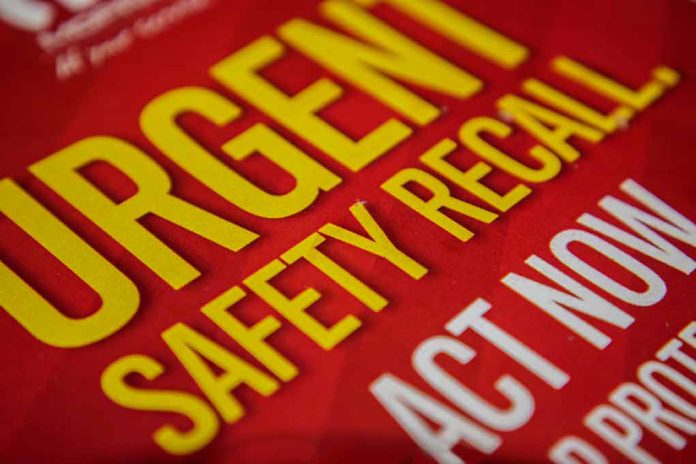
British troops face dire peril as 120,000 sets of body armor fail to protect against bullets, forcing a massive recall.
Key Takeaways
- One in ten Enhanced Combat Body Armour plates has failed testing, revealing dangerous cracks.
- The Ministry of Defence has suspended the use of ECBA except in unavoidable circumstances.
- Economic constraints and budget cuts have led to delays in replacing outdated equipment.
- UK’s support for Ukraine has further strained its defence resources, leading to widespread shortages.
- Transparency on defence acquisition and expenditure has decreased, hindering parliamentary scrutiny.
Shocking Discovery Threatens Troop Safety
In a startling revelation that has sent shockwaves through the British military, it has come to light that the body armor currently in use by UK forces is failing to provide the critical protection it’s designed for. Recent examinations have uncovered alarming cracks in the ceramic plates of the Enhanced Combat Body Armour (ECBA), rendering them ineffective against bullet impacts. This discovery has prompted an extensive recall of over 120,000 sets used across the RAF, Army, and Navy, raising serious concerns about troop safety and operational readiness.
The gravity of the situation cannot be overstated, as testing has revealed that a staggering one in ten plates has failed to meet essential protection standards. This failure rate poses an unacceptable risk to the lives of servicemen and women who rely on this equipment in combat situations. The Ministry of Defence has been forced to take immediate action, suspending the use of ECBA in all but the most unavoidable circumstances.
Budget Cuts and Delayed Replacements
The roots of this crisis can be traced back to economic constraints and questionable budget decisions. The use of these now-compromised plates was initially slated to end in 2023. However, plans for their replacement were delayed in an ill-fated attempt to save money. This decision, attributed to Tory budget cuts by Labour critics, has now backfired spectacularly, putting lives at risk and potentially costing far more in the long run.
“I will not accept a make do and mend approach to the safety or operational capability of our people. I know you will not either.” – Armed Forces minister Luke Pollard
Armed Forces minister Luke Pollard’s strong stance against a “make do and mend” approach underscores the severity of the situation. However, it also highlights the challenging balance between ensuring troop safety and managing tight budgets. The UK’s commitment to international defense partnerships and active engagements, particularly its support for Ukraine, has further strained its already stretched defense resources.
Widespread Equipment Shortages
The body armor crisis is just the tip of the iceberg in a series of equipment shortages plaguing the UK’s Armed Forces. Reports indicate alarming deficits in ammunition, air defenses, tanks, missiles, and rocket launchers. These shortages not only compromise the UK’s ability to defend itself but also its capacity to fulfill its NATO obligations and support allies in need.
“The reality is that transparency on acquisition, expenditure and capability has decreased, severely undermining the ability of both committees to scrutinise the estimated £300billion of taxpayers’ money planned to be spent on defence equipment over the next decade.” – Sir Geoffrey Clinton-Brown and Tan Dhesi
Adding to the concern is the lack of transparency surrounding defense acquisition and expenditure. This opacity has severely hindered parliamentary scrutiny, making it difficult for committees to effectively oversee the planned £300 billion defense equipment budget for the next decade. The failure to produce timely reports for Parliament has left key decision-makers in the dark about crucial defense spending needs.
A Call for Urgent Action
The current state of affairs demands immediate and decisive action. The UK must prioritize the safety and operational capability of its armed forces while also addressing the broader issues of equipment shortages and budget constraints. Increased investment in defense, coupled with improved transparency and accountability, is essential to ensure that the UK maintains a strong and effective military force capable of meeting current and future challenges.
As the situation unfolds, it’s clear that tough decisions lie ahead. The government must balance fiscal responsibility with the paramount need to protect those who put their lives on the line for the nation’s security. Failure to address these issues promptly and effectively could have far-reaching consequences for national defense and the UK’s standing on the global stage.






















